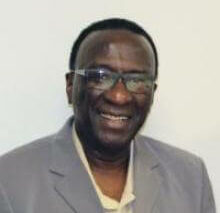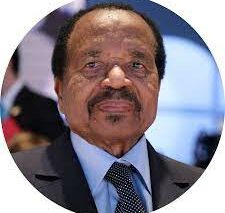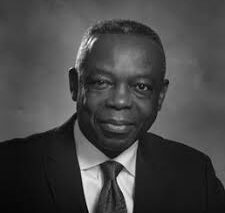In Part 3 of his interview to Cameroon Life Magazine, Celestin Monga talks of his
encounter with some Anglophone and Francophone intellectuals, especially those who played a significant role in the political upheaval period of the 1990s.
Mr. Monga, you earlier mentioned Anglophone intellectuals; how many do you know?
The most renowned, of course, is Mr. Albert Mukong. I have a great admiration for him. He’s a very courageous man. When I was a student in Paris, his name was to me a symbol of the fact that someone could still live in Cameroon, oppose the regime and survive. I drew great inspiration from his defiance of the regime. He was in jail but that did not break his will or his resolve. He’s to me an example of a great fighter. I hold him in very high esteem. I should also mention Dr Bole Butake of the University of Yaoundé, who has shown signs of great courage as well. There’s Dr. Siga Asanga of the University of Yaoundé; there is also Mr. Ntansi, an economist with the World Bank in Yaoundé and Dr Carlson Anyangwe of the University of Yaoundé. These are some of the people who’ve impressed me with their line of action as intellectuals. I don’t know much about their political convictions, though.
I don’t know if you’re aware that Albert Mukong is a highly controversial personality in Anglophone circles. He’s one of those advocating a return to the 1961 constitution, and even though he’s admittedly a founding father of the SDF party, his views on federalism have not been well embraced by the other members of that party and he’s presently at daggers drawn with them.
When I talk about him, I think of him more as an intellectual than as a political personality. His book Prisoner Without a Crime is a great contribution to the assessment of the democratization process in Cameroon.
What of Dr Bernard Fonlon?When I was studying in Paris, I knew his name as the editor of a review. I also knew him as a former Minister in Mr. Ahidjo’s regime, so I had my doubts about him until the Senegalese sociologist, Jean-Pierre Ndiaye, one of my masters, sent me a copy of the magazine Fonlon founded and edited for many years, Abbia. Then I changed my opinion of him. I never met him, though.
There’s a prize named after him that was recently awarded to your friend, Mongo Beti. It’s the Fonlon-Nichols Award granted by the University of Alberta in Edmonton, Canada. Are you aware of Mongo Beti’s reaction to that award?
No, we’ve not spoken about that; it’s, however, common knowledge that he doesn’t like literary awards. But I know he has a high regard for Bernard Fonlon’s mind.
Let’s linger a little longer on Mongo Beti. You seem to have a special relationship with him. You were able to convince him to come back to this country after 31 years in exile. That was quite a feat. How did you do it?
It was not easy as many people had tried before to bring him back to Cameroon, to no avail. I must point out here that I was not alone; I was with Professor Ambroise Kom, a very good friend of Mongo Beti’s and a professor at the University of Yaoundé. I first interviewed Beti for Jeune Afrique Economie in October 1990. It was not easy to get him to accept to be interviewed, especially as he was convinced that Jeune Afrique Economie would never publish it since he saw it as being too much in line with official propaganda. So when the interview was published, I called him and told him people in Cameroon were very impressed with what he had said and that it would be of immense help to the democratization process in this country if he were to come and give a few public conferences here after 31 years in exile. I don’t know why he accepted our invitation. Professor Kom and I made a few contacts with some intellectuals and officials at the Ministry of Information and Culture to organize such conferences. But, as you very well know, Mongo Beti did come but was never allowed to hold the arranged conferences.
Still just fresh from your trial and with a suspended sentence hanging over your head, immediately took up the difficult task of arranging Mongo Beti’s visit and of welcoming him into the country in the face of massive official media adverse propaganda. How did you handle that?
You’re right. Mongo Beti came here just a few weeks after that famous trial but I didn’t want to think of the risks involved. I thought more of his old mother whom he hadn’t seen in 31 years in exile. His mother died just a few months after his return from exile. So, bringing him into the country and watching him embrace his mother after all these years counted for me more than what could happen to me.



